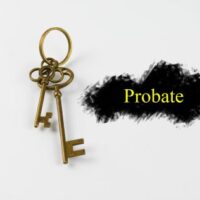When Is Probate Necessary?

Most of the time, a person in Westchester County seeks the help of an attorney when they want to avoid the probate process, given that probate can be a long, drawn-out experience. With the help of an attorney, it is possible to structure your estate so that it does not have to go through probate, thereby avoiding time, expense and trouble. A good attorney is able to tell you on which occasions probate is necessary – and sometimes, it is; otherwise, certain assets cannot be distributed to a person’s heirs. Knowledgeable legal representation can help you clarify your situation.
Why Avoid Probate?
Probate is the legal process by which a person’s estate is cataloged and disbursed. The probate process in New York will take place in Surrogate’s Court, where a person’s last will and testament is presented for verification. If it is verified as a valid will, the next step is to produce an inventory of all of a deceased person’s assets, and once their presence and value are properly established, they can then be given to the beneficiaries of the deceased.
There are several reasons why people try to avoid probate – perhaps chief among them being the fact that the process can be expensive. It is also time-consuming. Complex estates may take years to make it through the process. In addition, probate is public in New York and many prefer to keep their affairs (and their family’s affairs) private. However, there are certain situations where proper estate planning was not done and, as a result, probate cannot be avoided.
Exempt & Non-Exempt Assets
Under New York law, a deceased person’s assets can only pass to their heirs via one of two methods: (1) going through probate; or (2) being exempt from the probate process for one reason or another. Many assets fall under one or more of these exceptions: for example, assets held in trust for a beneficiary do not need to go through the probate process, because those assets have, in truth, already passed to a beneficiary while the decedent was alive. However, non-exempt assets must go through probate or they cannot be legally disbursed.
Some estates also do not need to go through the probate process due to their size or structure. For example, New York law states that an estate worth less than $50,000, that owns no real property, can go through what is known as voluntary administration. Alternatively, if an estate is composed entirely of assets exempt from probate, the process will not be necessary, and a decedent’s heirs can simply receive their bequests.
Contact A Westchester or Putnam County Estate Planning Attorney
If you are planning your estate, it can be tempting to try and avoid the probate process entirely, and sometimes, you may be successful – but sometimes it will not be possible to do so. A Westchester County estate planning attorney from the firm of Meyer & Spencer, PC can assist you with your case. Contact our office today at (845) 628-0009 or (914) 741-2288 to schedule a consultation.
